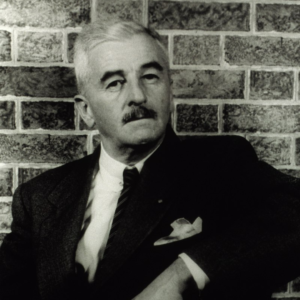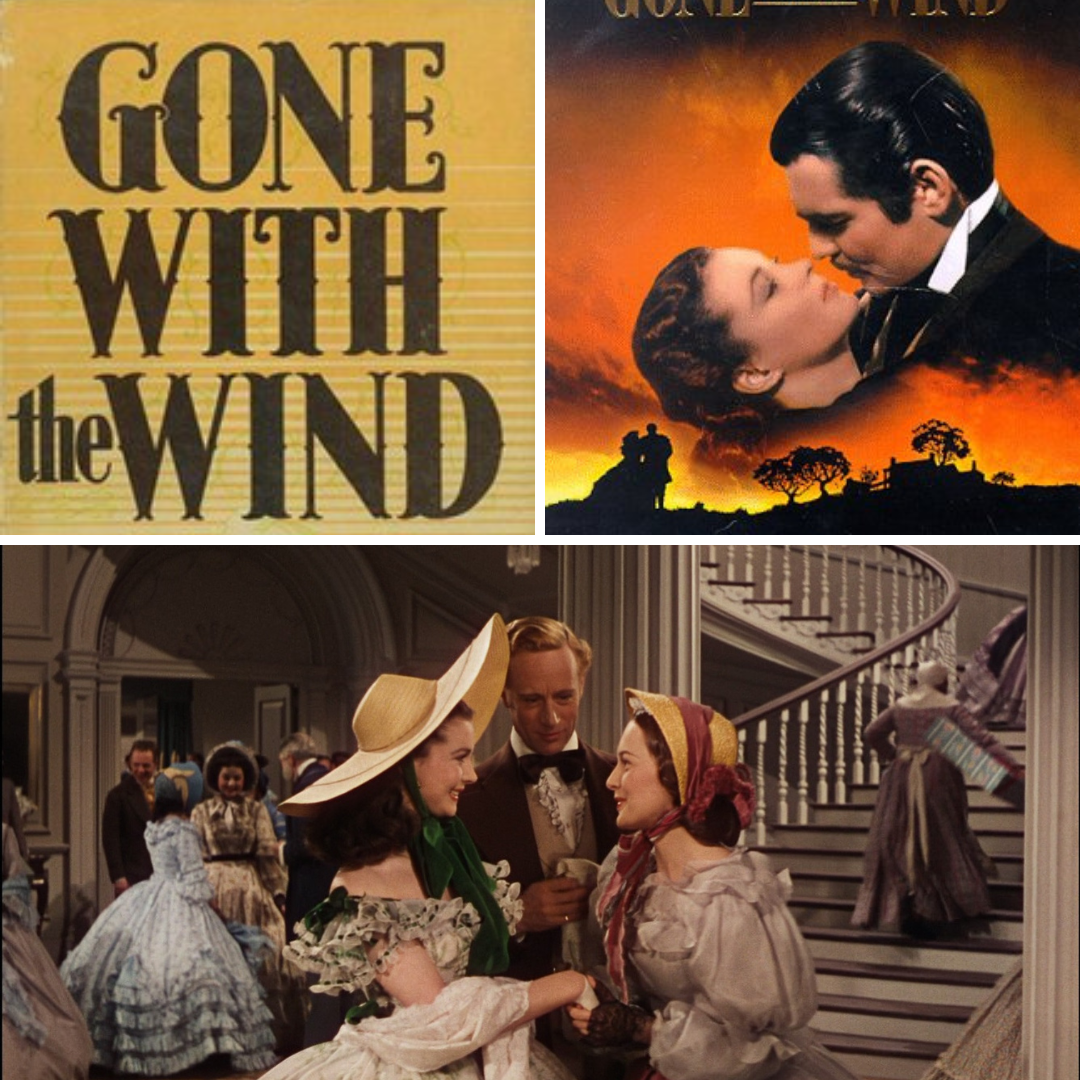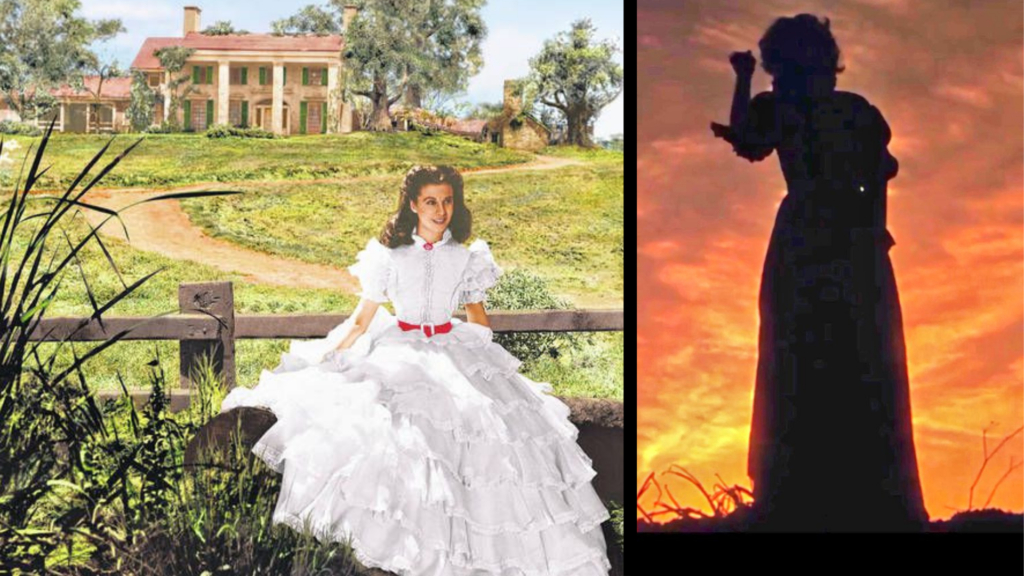V. Class V.
During the last class. we began looking at ways that roses have been used symbolically and metaphorically in literature. It’s important to note that at times, a symbol might have negative connotations. For instance, a rose’s thorns may suggest something negative, harmful, or even dangerous. Listen to another song:
Thorn Tree in the Garden – Lyrics:
[Verse 1]
There’s a thorn tree in the garden
If you know just what I mean
And I hate to hurt your feelings
But it’s not the way it seems, ’cause I miss her
[Verse 2]
She’s the only girl I’ve cared for
The only one I’ve known
And no one ever shared more love
Than we’ve known and I miss her…
________________________________________
Even though symbols are fairly reliable tools for understanding what writers are saying, the reader still needs to read closely. The writer may be using the symbol in a satirical way.
satire
Let’s look at another rose poem and try to understand whether or not the poet is being satirical:
One Perfect Rose
by Shirley Jackson
A single flow’r he sent me, since we met.
All tenderly his messenger he chose;
Deep-hearted, pure, with scented dew still wet—
One perfect rose.
I knew the language of the floweret;
“My fragile leaves, ” it said, “his heart enclose.”
Love long has taken for his amulet
One perfect rose.
Why is it no one ever sent me yet
One perfect limousine, do you suppose?
Ah no, it’s always just my luck to get
One perfect rose.
— Dorothy Parker, for more see Dorothy Parker: Complete Poems
“amulet
a small object worn to ward off evil, harm, or illness or to bring good fortune; protecting charm.” dictionary.com
____________
YOUR NEXT READING ASSIGNMENT IS TO READ A SHORT STORY THAT SEEMS TO BE ABOUT A ROSE.
“A Rose for Emily” by William Faulkner
What Is a Short Story?
A Short Story is a tale that is told with significantly fewer words than those which comprise a novel.
At one time, novelists increased their earning potential by publishing short stories in monthly magazines. Today, short stories are more often found in volumes of short stories. Ray Bradbury wrote numerous short stories. Some of them were published in Science Fiction magazines, and some of them are published in books–as collections of short stories.

William Faulkner was a famous writer who lived in Oxford, Mississippi. Oxford is where Ole Miss or the University of Mississippi is located, and while I was in college at Ole Miss, I had a job, working as a junior curator in Faulkner’s home Rowan Oak.

Faulkner was primarily a novelist, and he was the epitome of a Southern writer.
He wrote about the semi-fictional Yoknapatawpha County:
He also wrote a few short stories, and his short story “A Rose for Emily” is an example of Southern literature.
Read about William Faulkner and “A Rose for Emily” Meyer & Miller pgs. 40- 46.
Assignment: Read Perspective Meyer & Miller pg. 47-48.
Assignment: Read A Sample Close Reading Meyer & Miller pgs. 48-49.
Assignment: Read William Faulkner’s “A Rose for Emily.”
VI. Class VI
During an earlier class, we spent some time talking about the lyrics to the song “The Rose,” and we talked about Roses as Symbols in Literature. You have been asked to read William Faulkner’s short story “A Rose for Emily.”

Before we talk about the story, “A Rose for Emily,” let’s talk about William Faulkner for a moment:

“William Faulkner…(born September 25, 1897, New Albany, Mississippi, U.S.—died July 6, 1962, Byhalia, Mississippi.
“[Faulkner was an] American novelist and short-story writer who was awarded the 1949 Nobel Prize for Literature. As the eldest of the four sons of Murry Cuthbert and Maud Butler Falkner, William Faulkner (as he later spelled his name) was well aware of his family background and especially of his great-grandfather, Colonel William Clark Falkner, a colorful if violent figure who fought gallantly during the Civil War, built a local railway, and published a popular romantic novel called The White Rose of Memphis.” Britannica
Faulkner’s “A Rose for Emily” was published in 1930, but the period of the story dates back to the 1800s–to a time not long after the Civil War. The lifestyle of white Southern planters was radically altered by the Civil War. Since slavery was abolished as a result of that war, the planters lost the laborers who had harvested their cotton and they suffered financially. However, many Southerners refused to acknowledge that their statuses had changed. Faulkner writes about these issues.
______________
Note: I bet that when many of you “read” Faulkner’s short story “A Rose for Emily,” you merely scanned it. Scanning is not Reading.
Warning: For this class, you must thoroughly READ what I ask you to read. You must read the literary pieces well enough that you fully understand what you have read. You must read the pieces well enough to form a critical opinion about the writing in each piece. Scanning a piece is not sufficient to do well in this class.
Outlining is a good way to help understand what you are reading. Outlining is also a good way to organize your thoughts before writing a paper. Let’s practice outlining:
Assignment: I want you to re-read “A Rose for Emily, and I want you to outline the story:
How to Outline:
You list the first main point as Roman Numeral I.
Beneath that Roman Numeral, you list supporting points and list them with letters A, B, C, etc.
If you list a letter A point, you must also list at least one more point.
When you move to another main point, you start the A, B, C, etc, again.
Assignment: Outline Faulkner’s Story “A Rose for Emily.”
I’ve provided the following framework for you. Write full sentences to paraphrase more information for points A. and B. in the outline. [This is an open-book test, in the form of an outline.]
Each Blank counts as 1 point. If you use direct quotes, use quotation marks. If you paraphrase, you do not need to use quotation marks. Do NOT respond with nothing more than direct quotes. I want you to paraphrase your responses, but if you occasionally quote a phrase, use quotation marks correctly.
If you try to answer a question and get it wrong, I’ll deduct 1 point. If you don’t try to answer at all, I’ll deduct 2 points. If you do not submit this test, your grade will be -222 points. Otherwise, your grade might be +111 points. This test paper outline is due —– No late dates. It’s all or nothing. Submit your test on time
Paragraph for Roman Numeral I: “WHEN Miss Emily Grierson died, our whole town went to her funeral: the men through a sort of respectful affection for a fallen monument, the women mostly out of curiosity to see the inside of her house, which no one save an old man-servant–a combined gardener and cook–had seen in at least ten years.”
I.
A.
B.
Paragraph for Roman Numeral II: “It was a big, squarish frame house that had once been white, decorated with cupolas and spires and scrolled balconies in the heavily lightsome style of the seventies, set on what had once been our most select street. But garages and cotton gins had encroached and obliterated even the august names of that neighborhood; only Miss Emily’s house was left, lifting its stubborn and coquettish decay above the cotton wagons and the gasoline pumps-an eyesore among eyesores. And now Miss Emily had gone to join the representatives of those august names where they lay in the cedar-bemused cemetery among the ranked and anonymous graves of Union and Confederate soldiers who fell at the battle of Jefferson.”
II.
A.
B.
Paragraph for Roman Numeral III – “Alive, Miss Emily had been a tradition, a duty, and a care; a sort of hereditary obligation upon the town, dating from that day in 1894 when Colonel Sartoris, the mayor–he who fathered the edict that no Negro woman should appear on the streets without an apron-remitted her taxes, the dispensation dating from the death of her father on into perpetuity. Not that Miss Emily would have accepted charity. Colonel Sartoris invented an involved tale to the effect that Miss Emily’s father had loaned money to the town, which the town, as a matter of business, preferred this way of repaying. Only a man of Colonel Sartoris’ generation and thought could have invented it, and only a woman could have believed it.”
III.
A.
B.
Paragraph for Roman Numeral IV – “When the next generation, with its more modern ideas, became mayors and aldermen, this arrangement created some little dissatisfaction. On the first of the year they mailed her a tax notice. February came, and there was no reply. They wrote her a formal letter, asking her to call at the sheriff’s office at her convenience. A week later the mayor wrote her himself, offering to call or to send his car for her, and received in reply a note on paper of an archaic shape, in a thin, flowing calligraphy in faded ink, to the effect that she no longer went out at all. The tax notice was also enclosed, without comment.”
IV.
A.
B.
Paragraph for Roman Numeral V – “They called a special meeting of the Board of Aldermen. A deputation waited upon her, knocked at the door through which no visitor had passed since she ceased giving china-painting lessons eight or ten years earlier. They were admitted by the old Negro into a dim hall from which a stairway mounted into still more shadow. It smelled of dust and disuse–a close, dank smell. The Negro led them into the parlor. It was furnished in heavy, leather-covered furniture. When the Negro opened the blinds of one window, they could see that the leather was cracked; and when they sat down, a faint dust rose sluggishly about their thighs, spinning with slow motes in the single sun-ray. On a tarnished gilt easel before the fireplace stood a crayon portrait of Miss Emily’s father.”
V.
A.
B.
Paragraph for Roman Numeral VI – “They rose when she entered–a small, fat woman in black, with a thin gold chain descending to her waist and vanishing into her belt, leaning on an ebony cane with a tarnished gold head. Her skeleton was small and spare; perhaps that was why what would have been merely plumpness in another was obesity in her. She looked bloated, like a body long submerged in motionless water, and of that pallid hue. Her eyes, lost in the fatty ridges of her face, looked like two small pieces of coal pressed into a lump of dough as they moved from one face to another while the visitors stated their errand.”
VI.
A.
B.
Paragraph for Roman Numeral Paragraph for Roman Numeral VII – “She did not ask them to sit. She just stood in the door and listened quietly until the spokesman came to a stumbling halt. Then they could hear the invisible watch ticking at the end of the gold chain.
“Her voice was dry and cold. ‘I have no taxes in Jefferson. Colonel Sartoris explained it to me. Perhaps one of you can gain access to the city records and satisfy yourselves.’”
“So SHE vanquished them, horse and foot, just as she had vanquished their fathers thirty years before about the smell.
“That was two years after her father’s death and a short time after her sweetheart–the one we believed would marry her –had deserted her. After her father’s death she went out very little; after her sweetheart went away, people hardly saw her at all. A few of the ladies had the temerity to call, but were not received, and the only sign of life about the place was the Negro man–a young man then–going in and out with a market basket.”
VII.
A.
B.
Paragraph for Roman Numeral VIII – So the next night, after midnight, four men crossed Miss Emily’s lawn and slunk about the house like burglars, sniffing along the base of the brickwork and at the cellar openings while one of them performed a regular sowing motion with his hand out of a sack slung from his shoulder. They broke open the cellar door and sprinkled lime there, and in all the outbuildings. As they recrossed the lawn, a window that had been dark was lighted and Miss Emily sat in it, the light behind her, and her upright torso motionless as that of an idol. They crept quietly across the lawn and into the shadow of the locusts that lined the street. After a week or two the smell went away.
VIII.
A.
B.
Paragraph for Roman Numeral IX – “When her father died, it got about that the house was all that was left to her; and in a way, people were glad. At last they could pity Miss Emily. Being left alone, and a pauper, she had become humanized. Now she too would know the old thrill and the old despair of a penny more or less.
“The day after his death all the ladies prepared to call at the house and offer condolence and aid, as is our custom Miss Emily met them at the door, dressed as usual and with no trace of grief on her face. She told them that her father was not dead. She did that for three days, with the ministers calling on her, and the doctors, trying to persuade her to let them dispose of the body. Just as they were about to resort to law and force, she broke down, and they buried her father quickly.”
IX.
A.
B.
Paragraph for Roman Numeral X – “The construction company came with niggers and mules and machinery, and a foreman named Homer Barron, a Yankee–a big, dark, ready man, with a big voice and eyes lighter than his face. The little boys would follow in groups to hear him cuss the niggers, and the niggers singing in time to the rise and fall of picks. Pretty soon he knew everybody in town. Whenever you heard a lot of laughing anywhere about the square, Homer Barron would be in the center of the group. Presently we began to see him and Miss Emily on Sunday afternoons driving in the yellow-wheeled buggy and the matched team of bays from the livery stable.”
X.
A.
B.
Paragraph for Roman Numeral XI – “At first we were glad that Miss Emily would have an interest, because the ladies all said, “Of course a Grierson would not think seriously of a Northerner, a day laborer.” But there were still others, older people, who said that even grief could not cause a real lady to forget noblesse oblige– –
“without calling it noblesse oblige. They just said, “Poor Emily. Her kinsfolk should come to her.” She had some kin in Alabama; but years ago her father had fallen out with them over the estate of old lady Wyatt, the crazy woman, and there was no communication between the two families. They had not even been represented at the funeral.”
XI.
A.
B.
Paragraph for Roman Numeral XII – “‘I want some poison,’ she said to the druggist. She was over thirty then, still a slight woman, though thinner than usual, with cold, haughty black eyes in a face the flesh of which was strained across the temples and about the eyesockets as you imagine a lighthouse-keeper’s face ought to look. ‘I want some poison,’ she said.
‘Yes, Miss Emily. What kind? For rats and such? I’d recom–’
‘I want the best you have. I don’t care what kind.’
The druggist named several. ‘They’ll kill anything up to an elephant. But what you want is–’
‘Arsenic,’ Miss Emily said. ‘Is that a good one?’
‘Is . . . arsenic? Yes, ma’am. But what you want–’
‘I want arsenic.’”
XII.
A.
B.
Paragraph for Roman Numeral XIII – “So we were not surprised when Homer Barron–the streets had been finished some time since–was gone. We were a little disappointed that there was not a public blowing-off, but we believed that he had gone on to prepare for Miss Emily’s coming, or to give her a chance to get rid of the cousins. (By that time it was a cabal, and we were all Miss Emily’s allies to help circumvent the cousins.) Sure enough, after another week they departed. And, as we had expected all along, within three days Homer Barron was back in town. A neighbor saw the Negro man admit him at the kitchen door at dusk one evening.”
XIII.
A.
B.
Paragraph for Roman Numeral XIV – “When we next saw Miss Emily, she had grown fat and her hair was turning gray. During the next few years it grew grayer and grayer until it attained an even pepper-and-salt iron-gray, when it ceased turning. Up to the day of her death at seventy-four it was still that vigorous iron-gray, like the hair of an active man.
XIV.
A.
B.
Paragraph for Roman Numeral XV – “When we next saw Miss Emily, she had grown fat and her hair was turning gray. During the next few years it grew grayer and grayer until it attained an even pepper-and-salt iron-gray, when it ceased turning. Up to the day of her death at seventy-four it was still that vigorous iron-gray, like the hair of an active man.
“From that time on her front door remained closed, save for a period of six or seven years, when she was about forty, during which she gave lessons in china-painting. ”
XV.
A.
B.
Paragraph for Roman Numeral XVI – “And so she died. Fell ill in the house filled with dust and shadows, with only a doddering Negro man to wait on her. We did not even know she was sick; we had long since given up trying to get any information from the Negro
“He talked to no one, probably not even to her, for his voice had grown harsh and rusty, as if from disuse.
“She died in one of the downstairs rooms, in a heavy walnut bed with a curtain, her gray head propped on a pillow yellow and moldy with age and lack of sunlight.”
XVI.
A.
B.
Paragraph for Roman Numeral XVII – “The violence of breaking down the door seemed to fill this room with pervading dust. A thin, acrid pall as of the tomb seemed to lie everywhere upon this room decked and furnished as for a bridal: upon the valance curtains of faded rose color, upon the rose-shaded lights, upon the dressing table, upon the delicate array of crystal and the man’s toilet things backed with tarnished silver, silver so tarnished that the monogram was obscured. Among them lay a collar and tie, as if they had just been removed, which, lifted, left upon the surface a pale crescent in the dust. Upon a chair hung the suit, carefully folded; beneath it the two mute shoes and the discarded socks.
“The man himself lay in the bed.
“For a long while we just stood there, looking down at the profound and fleshless grin. The body had apparently once lain in the attitude of an embrace, but now the long sleep that outlasts love, that conquers even the grimace of love, had cuckolded him. What was left of him, rotted beneath what was left of the nightshirt, had become inextricable from the bed in which he lay; and upon him and upon the pillow beside him lay that even coating of the patient and biding dust.
“Then we noticed that in the second pillow was the indentation of a head. One of us lifted something from it, and leaning forward, that faint and invisible dust dry and acrid in the nostrils, we saw a long strand of iron-gray hair.”
XVII.
A.
B
___________________________
Let’s Look at A Well-Known Southern Novel that Became a Movie – Gone with the Wind:

In Gone with the Wind, Scarlet O’Hara’s family has suffered downward mobility during the Civil War, but Scarlet would not allow anyone to know how bad her financial situation was.

In one scene, Scarlet’s gorgeous plantation has been destroyed, and Scarlet herself is starving. In a moment of desperation, she declares:
“I’m going to live through this and when it’s all over, I’ll never be hungry again. No, nor any of my folk. If I have to lie, steal, cheat or kill. As God is my witness, I’ll never be hungry again.”
And Scarlet O’Hara did survive. But in doing so, she became less than a traditionally admirable Southern Belle. In my opinion, the title “Gone with the Wind” alludes to the fact that by the end of the Civil War, the Southern Myth was “Gone with the Wind.”
Faulkner often wrote about the Southern Myth, and he frequently focused on the hypocrisy that arose as many Southerners hid the fact that they were no longer a type of Southern Royalty.
In “A Rose for Emily,” Miss Emily’s House is an important symbol. Like Scarlet O’Hara’s Tara, the Grierson’s home was not the house that it had been during better financial times.
The time of “A Rose for Emily” was set during the early 1900s, but several years before that time, Colonel Sartoris had hatched a plan to camouflage the fact that Emily’s father no longer had enough money to pay his taxes:
“Colonel Sartoris invented an involved tale to the effect that Miss Emily’s father had loaned money to the town, which the town, as a matter of business, preferred this way of repaying. Only a man of Colonel Sartoris’ generation and thought could have invented it, and only a woman could have believed it.
“When the next generation, with its more modern ideas, became mayors and aldermen, this arrangement created some little dissatisfaction. On the first of the year they mailed her a tax notice.”
In the above passage, Faulkner reveals that he is contrasting the Old South with the New South.
In terms of seasons as themes, the Old South is experiencing late autumn, and the New South is experiencing spring.
In my opinion, the Grierson home is symbolic both of Emily Grierson and the Old South.
Miss Emily is symbolic of the Old South.
In the same way that her house had fallen into disrepair, Miss Emily’s personal appearance had slipped, too:
“They rose when she entered–a small, fat woman in black, with a thin gold chain descending to her waist and vanishing into her belt, leaning on an ebony cane with a tarnished gold head. Her skeleton was small and spare; perhaps that was why what would have been merely plumpness in another was obesity in her. She looked bloated, like a body long submerged in motionless water, and of that pallid hue. Her eyes, lost in the fatty ridges of her face, looked like two small pieces of coal pressed into a lump of dough as they moved from one face to another while the visitors stated their errand.” Faulkner, A Rose for Emily
“…an ebony cane with a tarnished gold head….” Faulkner, A Rose for Emily
Ebony is black — alluding to the theme of darkness versus day.
Tarnish is discoloring caused by the air, after some medals have been exposed to it for a bit of time. Tarnish suggests the effect of Time.
“We’re Captive on the Carousel of Time” – Joni Mitchell, The Circle Game
Faulkner alludes to the cyclical nature of time by saying that every year, a tax notice was sent to Miss Emily.
At least twice Faulkner mentioned the routine going and coming of the man who worked for Emily Grierson:
“Daily, monthly, yearly we watched the Negro grow grayer and more stooped, going in and out with the market basket. Each December we sent her a tax notice, which would be returned by the post office a week later, unclaimed.
Faulkner also alludes to the ticking away of time:
“… they could hear the invisible watch ticking at the end of the gold chain.” Faulkner, A Rose for Emily
All of these repeated behaviors become cycles–or as Joni Mitchell said, “Circle Games.”
Shakespeare once observed that something was foul in Denmark:
“Something’s Rotten in the State of Denmark.” – Shakespeare
In Faulkner’s “A Rose for Emily,” Something’s Rotten in Jefferson, Mississippi, too.
At the time when Emily Grierson was alive, people would have used outhouses as their bathrooms. There is no way to flush an outhouse, and they smell bad. Lime is a white, powdery substance, and it was sprinkled down into the holes of an outhouse to help camouflage the odors in outhouses, but the stench never goes away completely. The stench around Emily Grierson and her house never go away either. In the story “A Rose for Emily,” it seems to be symbolic that the sneaking aldermen used lime to camouflage the odor that they associated with Miss Emily. It is as though Faulkner is suggesting that the Grierson family has become smelly, too. Later in the story, we’ll be led to believe that someone had died in Emily Grierson’s house. Certainly, the Grierson house had an odor, and again, Houses are often Symbols in Literature.
The lime was a way to camouflage the odor coming from the Grierson’s house. Camouflage is a type of hypocrisy–a type of hiding in plain sight. The odor about the Grierson’s house was a multifaceted thing. It was more than the mere stench of a rotting body. The Griersons themselves were rotting. No doubt, Emily Grierson is symbolic of the Southern Myth, which Faulkner believed had begun to rot.
The people in Jefferson “…believed that the Griersons held themselves a little too high for what they really were. None of the young men were quite good enough for Miss Emily and such.”
Like Rhett Butler in Gone with the Wind, Homer Barron, a Yankee, imposes himself upon the Southern town of Jefferson. Being a Yankee was especially offensive to pretentious Southerners, but Homer Barron was also little more than a day laborer. He had two strikes against him, and the people in Jefferson, Mississippi, thought that Homer Barron was not an appropriate suitor for Miss Emily. But Emily Grierson did not seem to care what the people in Jefferson thought about her. She seems to have been romantically involved with Homer Barron, in spite of what the neighbors thought:
“Presently we began to see him and Miss Emily on Sunday afternoons driving in the yellow-wheeled buggy and the matched team of bays from the livery stable.
“At first we were glad that Miss Emily would have an interest, because the ladies all said: ‘Of course, a Grierson would not think seriously of a Northerner, a day laborer.’ But there were still others, older people, who said that even grief could not cause a real lady to forget noblesse oblige….” Faulkner, A Rose for Emily
Define noblesse oblige –
Hypocrisy and Appearances in “A Rose for Emily”
In the first paragraph of the story “A Rose for Emily,” Faulkner shines a light on the hypocrisy in Jefferson, Mississippi:
“WHEN Miss Emily Grierson died, our whole town went to her funeral: the men through a sort of respectful affection for a fallen monument, the women mostly out of curiosity to see the inside of her house….” Faulkner, A Rose for Emily
Appearances Are Very Important In Maintaining the Southern Myth
The neighbors did not approve of Miss Emily’s relationship with Homer Barron, but they would not confront her directly. “The men did not want to interfere, but at last the ladies forced the Baptist minister–[Miss Emily’s people were Episcopal]– to call upon her.” This is another example of hypocrisy. It is double hypocrisy. Emily Grierson’s religious leader was not sent to call on her. The townspeople of Jefferson, most of whom were no doubt Baptist, thought it better to send their own minister to call on Emily Grierson. When the Baptist preacher failed, his wife picked up the campaign.
After a while, Homer Barron seemed to have disappeared. Miss Emily’s appearance faltered soon thereafter.
“When we next saw Miss Emily, she had grown fat and her hair was turning gray. During the next few years it grew grayer and grayer until it attained an even pepper-and-salt iron-gray, when it ceased turning. Up to the day of her death at seventy-four it was still that vigorous iron-gray, like the hair of an active man.” Faulkner, A Rose for Emily
Why did Faulkner name his short story “A Rose for Emily?”
To be honest, I am not sure why Faulkner named his short story “A Rose for Emily.” Scholars all around the world debate what the title of Faulkner’s story means.
In my opinion, however, Faulkner allows us a glimpse of the title’s meaning in the following words:
“When the Negro opened the blinds of one window, they could see that the leather was cracked; and when they sat down, a faint dust rose sluggishly about their thighs, spinning with slow motes in the single sun-ray. On a tarnished gilt easel before the fireplace stood a crayon portrait of Miss Emily’s father.”
In my opinion, the Rose for Emily is a Dust Rose.
In the above passage, Faulkner is alluding both to the effects of time and to the themes of Darkness versus Light in his story:
The windows in Emily Grierson’s home were covered by blinds. Typically, the blinds were shut, and Emily rarely looked outside. Because of those blinds, the house itself was dark and shadowy. But Emily’s ability to see out into the world was also obscured. By this, I am saying that Emily could not truly see, There was only a “….single sun-ray. On a tarnished gilt….”
“So the next night, after midnight, four men crossed Miss Emily’s lawn and slunk about the house like burglars ….”
In my opinion, Faulkner is saying that the people of Jefferson, Mississippi, lacked the light of understanding–they lacked enlightenment, and because of that, they could not truly see.
But Emily Grierson also lacked the light of understanding. She willingly lived in a dark house, and she rarely opened her blinds and looked outside.
We must learn to truly SEE and not merely look.
The last thing that I want to discuss is whether or not Emily Grierson was a prisoner in her own house.

Probably because I lived in Mississippi most of my life, when I first read “A Rose for Emily,” I imagined that there was an old iron fence around the Grierson house. Old Victorian houses enclosed within iron fences are common in Mississippi.

To help understand the nature of a fence, read A Fence by Carl Sandburg
A Fence
Carl Sandburg
Now the stone house on the lake front is finished and the
workmen are beginning the fence.
The palings are made of iron bars with steel points that
can stab the life out of any man who falls on them.
As a fence, it is a masterpiece, and will shut off the rabble
and all vagabonds and hungry men and all wandering
looking for a place to play.
Passing through the bars and over the steel points will go
nothing except Death and the Rain and Tomorrow.
Assignment Paper 1
Assignment Paper 1: Discuss ways that Faulkner used the themes of darkness versus light in “A Rose for Emily.” If you prefer, you can talk about how Faulkner harnessed the Circles of Life in his story. Either way that you elect to approach the story, also offer your opinion about whether or not Emily Grierson was trapped inside some type of fence. Explain. Consider Sandburg’s “A Fence” for this part of your response. You may also wish to offer your opinion about how and why Homer Barron disappeared. Last, you may want to discuss why Faulkner titled his story “A Rose for Emily.” You may arrange your points in any way you wish. The only topic that you must address is the darkness versus the light in the story. Remember that your essay will have one main topic, and each paragraph must support that main topic. Choose the topic of your paper from any of the preceding points. The paper must have at least 5 paragraphs, and each paragraph must support the main topic of the paper. Each paragraph will have a topic sentence, and each of the sentences thereafter must support the topic sentence of the paragraph.
I am only alerting you that this paper assignment is coming soon, but we are going to do a couple of things before you write that paper